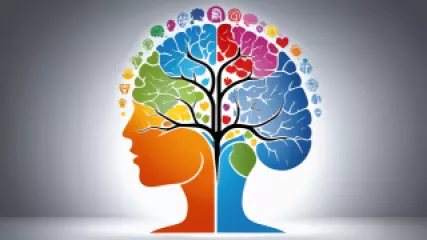Understanding the Fundamentals of Emotional Intelligence
Introduction
Emotional intelligence (EI) has gained significant recognition in recent years as a crucial skill set for personal and professional success. It encompasses the ability to understand and manage emotions, both in oneself and others, and plays a pivotal role in various aspects of life, including relationships, mental health, and leadership. This article aims to provide a comprehensive overview of the fundamentals of emotional intelligence, exploring its definition, components, benefits, and strategies for development.
Defining Emotional Intelligence
Emotional intelligence refers to the capacity to recognize, understand, and regulate emotions effectively. It involves the ability to perceive and interpret emotional cues in oneself and others, and to use this information to guide behavior and decision-making. While traditional intelligence (IQ) focuses on cognitive abilities, emotional intelligence recognizes the importance of emotional awareness and interpersonal skills.
There are multiple models of emotional intelligence, but one of the most prominent is the framework developed by psychologists Peter Salovey and John D. Mayer. Their model proposes four key components:
- Perceiving emotions: This involves accurately identifying and recognizing emotions in oneself and others. It includes being attuned to facial expressions, body language, and vocal cues.
- Using emotions: The ability to harness emotions to facilitate thinking and problem-solving. Emotionally intelligent individuals can use their emotions to motivate themselves, make decisions, and think creatively.
- Understanding emotions: This component focuses on comprehending the complex nature of emotions, including the causes, consequences, and nuances of different emotional states.
- Managing emotions: The capacity to regulate and manage one's own emotions and respond appropriately to the emotions of others. This includes skills such as self-control, resilience, empathy, and effective communication.
By cultivating these components, individuals can develop their emotional intelligence skills and enhance their ability to navigate social interactions, handle stress, and build meaningful relationships.
The Benefits of Emotional Intelligence
Emotional intelligence is a valuable asset in various aspects of life. Research has shown that individuals with higher levels of emotional intelligence experience several benefits:
- Improved mental health: Emotional intelligence is closely linked to mental well-being. People with higher emotional intelligence are better equipped to manage stress, cope with adversity, and maintain positive mental health.
- Stronger relationships: Effective communication, empathy, and understanding are fundamental in building and maintaining healthy relationships. Emotional intelligence fosters these skills, enabling individuals to form deeper connections with others.
- Enhanced leadership abilities: Leaders who possess emotional intelligence are more likely to inspire and motivate their team members. They can navigate conflicts, make informed decisions, and create a positive work environment.
- Increased self-awareness: Emotional intelligence promotes self-reflection and introspection, allowing individuals to gain a deeper understanding of their own emotions, strengths, and weaknesses. This self-awareness facilitates personal growth and development.
- Better conflict resolution: By understanding emotions and perspectives, emotionally intelligent individuals are adept at resolving conflicts and finding mutually beneficial solutions.
These benefits highlight the significance of emotional intelligence in various domains and underscore the importance of developing and nurturing this skill set.
Strategies for Developing Emotional Intelligence
While some individuals may naturally possess higher levels of emotional intelligence, it is a skill that can be developed and strengthened over time. Here are some strategies to enhance emotional intelligence:
- Self-reflection: Take the time to reflect on your emotions, triggers, and behavioral patterns. Self-awareness is the first step towards developing emotional intelligence.
- Active listening: Practice active listening by giving your full attention to others during conversations. This involves being present, maintaining eye contact, and demonstrating empathy.
- Empathy: Put yourself in someone else's shoes to understand their emotions and experiences. Cultivate empathy by considering different perspectives and practicing compassion.
- Emotion regulation: Learn techniques to manage and regulate your own emotions, such as deep breathing exercises, mindfulness, and journaling.
- Conflict resolution: Develop skills for resolving conflicts constructively. Focus on finding common ground and seeking win-win solutions.
- Seek feedback: Request feedback from trusted individuals to gain insights into your emotional intelligence strengths and areas for improvement.
- Continuous learning: Engage in emotional intelligence workshops, read books on the topic, or seek out online resources to expand your knowledge and understanding.
By incorporating these strategies into your daily life, you can foster the growth of your emotional intelligence and reap the associated benefits.
Conclusion
Emotional intelligence is a vital skill set that plays a significant role in personal and professional success. Understanding the fundamentals of emotional intelligence, including its definition, components, benefits, and strategies for development, empowers individuals to cultivate this skill and enhance their overall well-being. By investing in the development of emotional intelligence, individuals can improve their relationships, mental health, and leadership abilities, ultimately leading to a more fulfilling and successful life.






